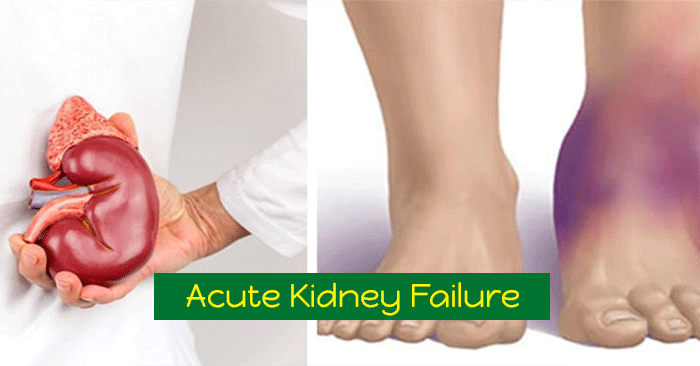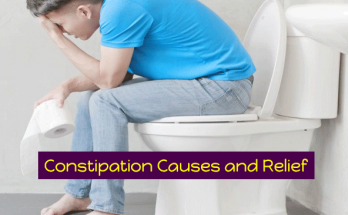Acute Kidney Failure: Causes, Types, Symptoms, and Treatment
Introduction
Kidney failure occurs when both your kidneys shut down and fail to perform their function of filtering out waste products from your body. The most common waste product is urea, which, if not excreted, accumulates and causes damage to multiple organs in the body. Kidney failure is a highly serious end-stage kidney disease and can be of two types – Acute Kidney Failure or Chronic Kidney Failure.
Acute Kidney Failure:
Acute kidney failure (also known as Acute Kidney Injury or Acute Renal Failure) usually occurs when a sudden decline in the kidney’s normal functions is seen over seven days or less. Since this is an acute event with a sudden onset, it can easily be reversed with urgent, vigorous management.
Read Also: Frequent Urination Causes
AKI Causes:
These can be divided into three categories:
Pre-Renal Causes:
- Hypotension
- Decreased Cardiac Output
- Ascites (fluid build-up in the abdominal cavity), edema, hypoalbuminemia
- Hypovolemia
- Congestive Heart Failure
- Liver Failure
- Burns, dehydration, hemorrhage
- Myocardial Infarction
- Shock (anaphylactic or septic)
- Renal Vein Thrombosis/obstruction
Intra-Renal Causes:
- Injury to kidneys by trauma or drugs
- Infections
- Allergies to drugs
- Toxins damage the glomeruli (cells of the kidney)
- Glomerular Disease (IgA nephropathy, nephritic or nephrotic syndrome)
- Infiltration by tumors
- Hepato-renal syndrome
- Ischemia (reduced blood supply)
Post-Renal Causes:
- Bladder outlet obstruction
- The enlarged prostate gland in males
- Kidney Stones
- Bladder tumor or injury
AKI Signs and Symptoms:
- Decreased Urinary Output
- Fatigue and weakness
- Loss of Appetite
- Nausea and Vomiting
- Headache, drowsiness, Seizures
- Increased Fluid Accumulation causing peripheral edema
- Shortness of breath/ Pulmonary Edema
- Cardiac arrhythmia/ tamponade
Chronic Kidney Failure
Chronic Kidney Failure, more commonly known as Chronic Kidney Disease (CKD), occurs over months to years and is basically a gradual decline in kidney function. It is a chronic process and the damage done is mostly irreversible.
Causes of CKD:
- Diabetes
- Hypertension (High Blood Pressure)
- Polycystic Kidney Disease
- Glomerulonephritis
- Diseases of the heart or lungs
- Cancers
- Autoimmune disorders
- Obstruction of the urinary tract
Signs and Symptoms of CKD:
- Initially, polyuria (increased urination) followed by oliguria (decreased urinary Output)
- Fatigue and weakness
- Generalized Itching
- Headaches
- Nausea and Vomiting
- Uremic fetor (ammonia breath odor)
- Uremic frost
- Increased urination at night
- Edema
- Muscle cramps and restless legs syndrome
- Behavioral changes- depression
- Anemia
- Dry, flaky skin
- Shortness of breath, coughing with thick sputum
- Metallic taste
- Gum or mouth ulcers
General Diagnosis
- Urine Analysis
- Full Blood Count
- Renal Panel – urea, creatinine, BUN, and electrolyte levels
- Albumin levels
- Renal Ultrasound or CT scan
- Catheterization – Urinary Input and Output Monitoring
- Kidney Biopsy
Acute Kidney Injury:
- Manage and treat all Acute complications like fluid overload, hyperkalemia, acidosis, etc)
- Catheterize patient to measure urine input and output very strictly
- Treat the causes
- Correction of fluids intravenously
- Monitor and control blood pressure
- Stop and avoid all offending agents like drugs or allergens
- Renal Replacement Therapy – Hemodialysis
Chronic Kidney Disease:
- Ace Inhibitor drugs or ARBs for managing and controlling blood pressure.
- Control blood sugar levels
- Low protein and low salt diet advised
- Calcitriol and Erythropoietin levels monitoring and replacement
- Treat anemia with iron supplementation
- Manage and treat all complications like malnutrition, anemia, bone disease, electrolyte and acid imbalance, any cardiovascular complications and hyperparathyroidism, etc
- Renal replacement therapy – dialysis
- Renal transplant- the last resort.
Conclusion
Kidney Failure is one such condition that can not be taken lightly due to its major complications if not treated in time. Acute Kidney failure is fairly reversible but chronic kidney disease causes permanent damage. It is always ideal to go to the Emergency Department of your nearest hospital if any of the alarming signs and symptoms of kidney failure start to appear. Early intervention is preferred for such a serious condition.




